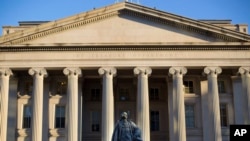From time to time, the United States identifies certain individuals as crucial to the operation of terrorist organizations. Most often these are top leaders or prominent members within the group, or they help finance terrorist organizations.
On January 23, the U.S. identified Khalid Batarfi, Siddhartha Dhar and Abdelatif Gaini as Specially Designated Global Terrorists. All three were designated under Executive Order 13224, which seeks to deprive these terrorists of the resources they need to carry out their nefarious plans. The designation allows the United States to freeze their assets, lock the terrorists out of the global financial network, and prosecute them for terrorist activities. It also prohibits any U.S. citizen or resident from doing business with then.
Khalid Batarfi, also known as Abū al-Miqdād al-Kindī, is a senior leader of Al Qa’ida in the Arabian Peninsula, or AQAP: a previously designated Foreign Terrorist Organization. He oversaw the group's media network. He was in charge of AQAP’s 2011 takeover of Yemen's Abyan Governorate. There he held the position of emir. He is also a former member of AQAP’s shura council.
Siddhartha Dhar and Abdelatif Gaini are members of ISIS. Dhar, who was born in London to a family of Indian origin, changed his name to Abu Rumaysah on converting to Islam. He acted as spokesman for the now-defunct terrorist organization Al-Muhajiroun. In 2014, Dhar, his wife and their children traveled to Syria to join ISIS. There he has evidently replaced as chief ISIS executioner, Mohammad Emwazi, also known as ‘Jihadi John’, who was killed in a 2015 drone strike.
Abdelatif Gaini is a Belgian-Moroccan citizen believed to be fighting for ISIS in the Middle East. He has a connection to United Kingdom-based ISIS sympathizers Mohamad Ali Ahmed and Humza Ali, who were convicted in the U.K. of terrorism offenses.
Today’s action notifies the U.S. public and the international community that Khalid Batarfi, Siddhartha Dhar and Abdelatif Gaini have committed or pose a significant risk of committing acts of terrorism.Terrorist designations expose and isolate organizations and individuals, and deny them access to the U.S. financial system. Moreover, designations can assist the law enforcement activities of U.S. agencies and other governments.




